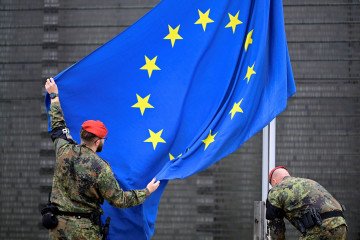- Category
- World
Putin’s Bid to Fracture NATO, Weaken Europe, and Rebuild Russian Empire
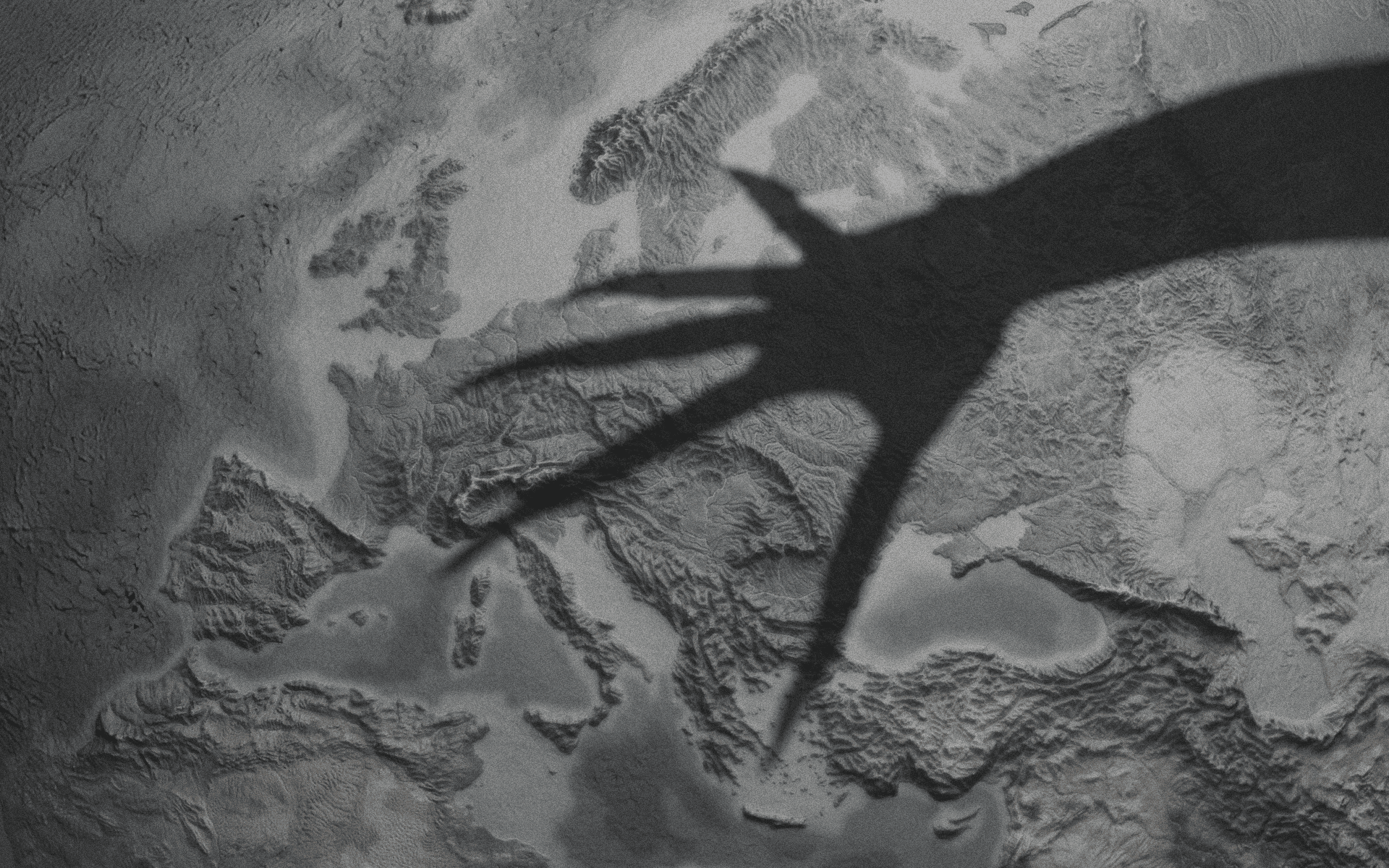
Russian leader Vladimir Putin isn’t just after land—he aims to break NATO and sow discord between the US and the EU, rewriting Europe’s future in Moscow’s favor.
Divide et impera—"divide and conquer"—Julius Caesar's strategy endures as the go-to playbook for autocrats, both historical and contemporary. As the global landscape evolves, this tactic remains a key tool in the arsenal of those vying for power, demonstrating its enduring relevance in the pursuit of control.
“Their [the Russians] ultimate goal was to dismantle the European Union, to undermine NATO, and to persuade the United States to leave Europe,” American journalist and historian Anne Applebaum warned in 2022.
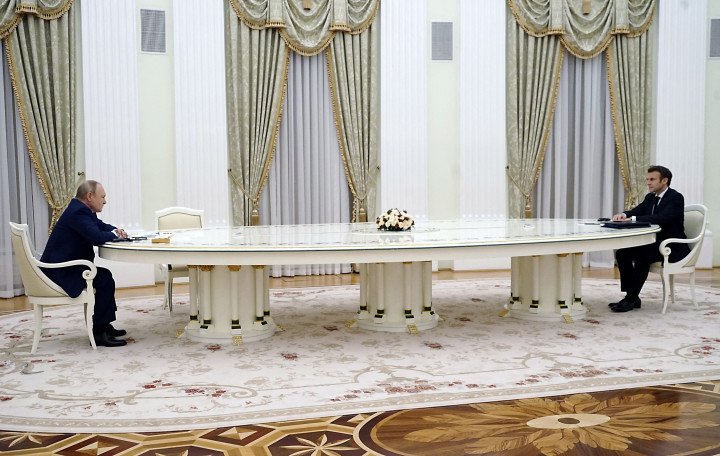
From Ukraine to the West, Putin follows the same playbook. Whether it’s backing far-right and far-left movements in Europe or arming proxy forces while invading and occupying foreign land, Putin’s approach is about undermining stability and seizing opportunities when his opponents are weakest.
The recent US-Russia meeting in Riyadh, focused on reinstating embassies, is a big shift in Washington’s approach. Reopening diplomatic channels without clear conditions could reinforce Moscow’s narrative that the war is negotiable, rather than a direct attack on Ukraine’s sovereignty—one that risks legitimizing Putin and delivering Moscow a win not on the territorial front but on a strategic level.
Fracturing NATO
“We wanted to saw the western world into pieces,” Yevgeny Popov, a Russian television presenter and MP with Putin’s ruling party, stated on February 12, adding, “But [Trump] decided to saw through it himself.”
Kremlin-backed propagandists are reportedly intensifying their efforts to announce a “victory” on February 24, marking the third anniversary of the Russian full-scale invasion of Ukraine—potentially framing it as a triumph over NATO. Meanwhile, Russia is seizing on US diplomatic overtures to cast itself as a “constructive” force in the war, while accusing European allies of Ukraine of being “enemies of peace.”
US Vice President JD Vance stoked tensions in Munich, criticizing Germany for not collaborating with the AfD and declaring to a flabbergasted audience that the biggest threat to Europe was “the threat from within,” adding, “Europe faces many challenges, but the crisis this continent faces right now, the crisis I believe we all face together, is one of our own making.”
The US stance has alarmed Europe, with German Vice Chancellor Robert Habeck stating that Trump administration’s attack on Western values is something that “cannot be taken seriously enough.”
Stefanie Babst, former Deputy Assistant Secretary General of NATO, recently warned that the US aligning with Russia would undermine NATO and European security. “I don’t think that the Trump administration is prepared to really commit any longer to NATO, to the trans-Atlantic alliance as such,” she said.
Despite an ICC arrest warrant, Putin remains active on the global stage, retaining Russia’s veto power in the UN Security Council. Russia’s continued participation in global institutions, despite its blatant violations of international law, highlights a fundamental flaw in the international system. The United Nations, the International Criminal Court, and other bodies were created to ensure lasting peace and accountability.
And now, with the introduction of a bill calling for the United States to withdraw from the United Nations, arguing that the international body undermines American interests and fails to reflect President Trump’s “America First” agenda—Putin stands to gain even more sway over global security.
Europe’s future decided without Europe
As US and Russian diplomats met in Saudi Arabia to discuss ending the war, President Zelenskyy made it clear—Kyiv will not accept ultimatums. Yet Moscow is demanding more than just a halt to Ukraine’s NATO ambitions. Russia now insists that the West formally retract its 2008 pledge to one day admit Ukraine into the alliance.
Putin is not just after territorial gains—he is trying to subjugate Ukraine and rewrite Europe’s security order.
US Secretary of State Marco Rubio announced four key agreements with Moscow, according to CNN. These agreements included restoring diplomatic staffing and forming a high-level team to negotiate Ukraine’s future.
This development sets the stage for a potential summit between Trump and Putin, aiming to discuss broader “geopolitical cooperation"—a term that could encompass trade deals or significant agreements potentially affecting Kyiv’s interests.
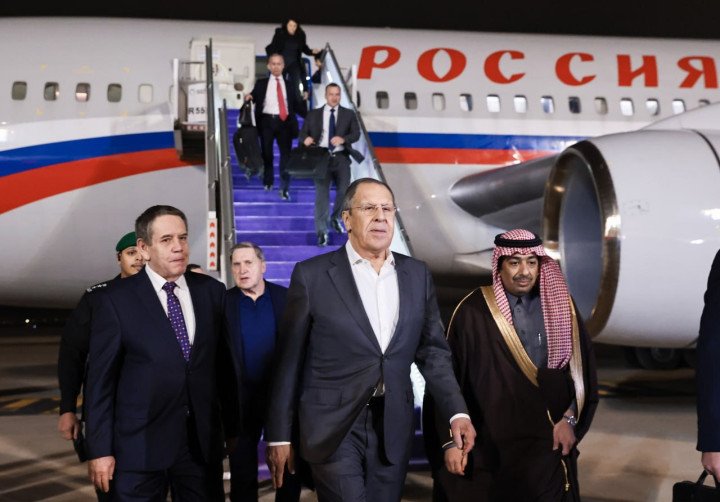
“Let’s not be naive about Putin,” NATO Secretary General Mark Rutte cautioned against underestimating Russia’s threat, addressing the possibility of negotiations. “You just have to look at what happened in Bucha. So if a peace agreement is reached, it must be sustainable. We must ensure that he can never, ever again conquer even one square kilometer of Ukraine.”
When Russian forces invaded Bucha in the spring of 2022, after its liberation, Kyiv discovered 458 executed and tortured civilians, many showing signs of abuse. Similar horrors were uncovered in towns like Izium, where 447 bodies were exhumed, 414 of them civilians.
Any negotiations that leave Russia unaccountable will undermine the principles underpinning Western values and deepen fractures within Western alliances—a goal that aligns with Putin’s strategy.
The war didn’t go to plan, so Putin is changing tactics
Rewinding back to the early days of Russia’s full-scale invasion, RIA Novosti accidentally published an article declaring Russia’s victory and the dawn of a “new world order”—the piece clearly written in advance, assumed a swift conquest of Ukraine, stating, “Ukraine has returned to Russia… It will be reorganized, re-established and returned to its natural state as part of the Russian world…”
This appeared not only as propaganda but potentially as a blueprint for Moscow’s vision, one that seemed to unravel as Ukraine’s resistance challenged the myth of Russian military invincibility.
Now, nearly three years later, Putin is still searching for a way to salvage that failed plan.
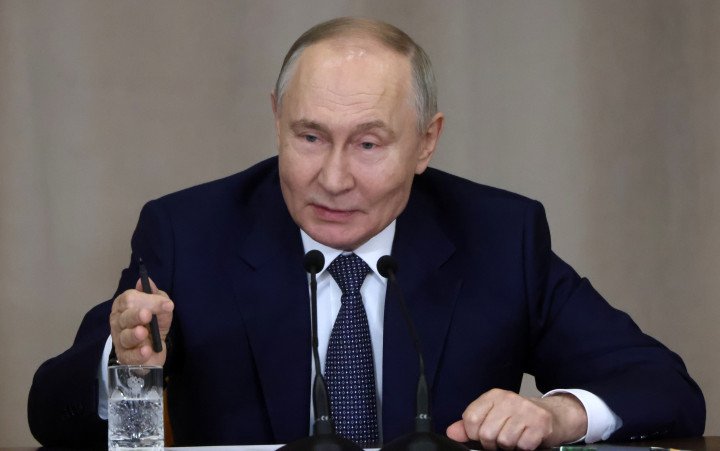
“Putin’s goals are really not only about control over territory,” The director of the Carnegie Russia Eurasia Center in Berlin, Alexander Gabuev, said. The world faces a choice: either it will accept aggression or push Russia to confront the failure of its imperial ambitions.
Before Putin launched his full-scale invasion of Ukraine, he issued an ultimatum to the West—NATO had to withdraw from Eastern and Central Europe, effectively restoring Russia’s sphere of influence. At the time, it seemed absurd. The West dismissed it outright.
But three years later, the world is seriously discussing many of the very things Putin demanded.
This isn’t just about Ukraine’s survival—it’s about whether Putin’s divide-and-conquer strategy succeeds on a global scale. Will the US and Europe hold the line, or will Putin claim the victory he couldn’t win in battle?
-554f0711f15a880af68b2550a739eee4.jpg)
-27ef304a0bfb28cb4215e5deede4a665.png)
-46f6afa2f66d31ff3df8ea1a8f5524ec.jpg)
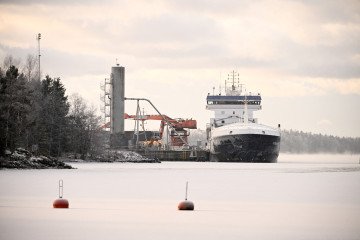
-605be766de04ba3d21b67fb76a76786a.jpg)
-2c683d1619a06f3b17d6ca7dd11ad5a1.jpg)

